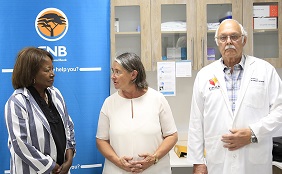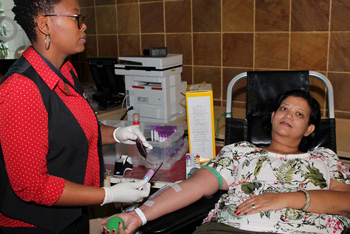
Men embracing medical circumcision
The World Health Organisation (WHO) recently announced that 5.8 million men in 14 countries in southern and eastern Africa have chosen to be medically circumcised for HIV prevention since 2008. The pace of scale-up has been dramatic in the last three years, with nearly half of these circumcisions conducted in 2013 alone. WHO stated in their research, that the following southern African countries, Namibia, Botswana, Zimbabwe, South Africa, Lesotho Mozambique, Swaziland and Zambia have high rates of heterosexual HIV transmission and historically low levels of male circumcision coverage and are priorities for scale-up. The rapid increase in men and boys choosing medical circumcision in southern and eastern Africa demonstrates the feasibility of the procedure as an HIV prevention strategy, therefore social acceptance is growing and countries are investing in medical infrastructure and capacity. “Attaining near-universal coverage of voluntary medical male circumcision could change the course of the HIV epidemic in Africa, by preventing more than 3 million HIV infections and saving more than US16 billion in the future health care cost that would have been needed for HIV treatment,” stated WHO.
Clinical studies have shown that voluntary medical male circumcision reduces female-to male sexual HIV transmission by 60% and therefore by reducing new HIV infections in men reduces their female partners exposure to HIV. The study stated that newly circumcised men reported increased condom use up to two years following the procedure. This is consistent with previous research that found circumcised men consider condoms more comfortable and easier to use. “Now that voluntary medical male circumcision has been demonstrated to be a feasible HIV prevention, accelerating the pace of scale-up must be a tip priority for achieving an HIV-free generation. The investment offers excellent value, if more men can access and choose medical circumcision, millions of HIV infections will be averted and billions of dollars in health care costs will be saved,” WHO stated.












































